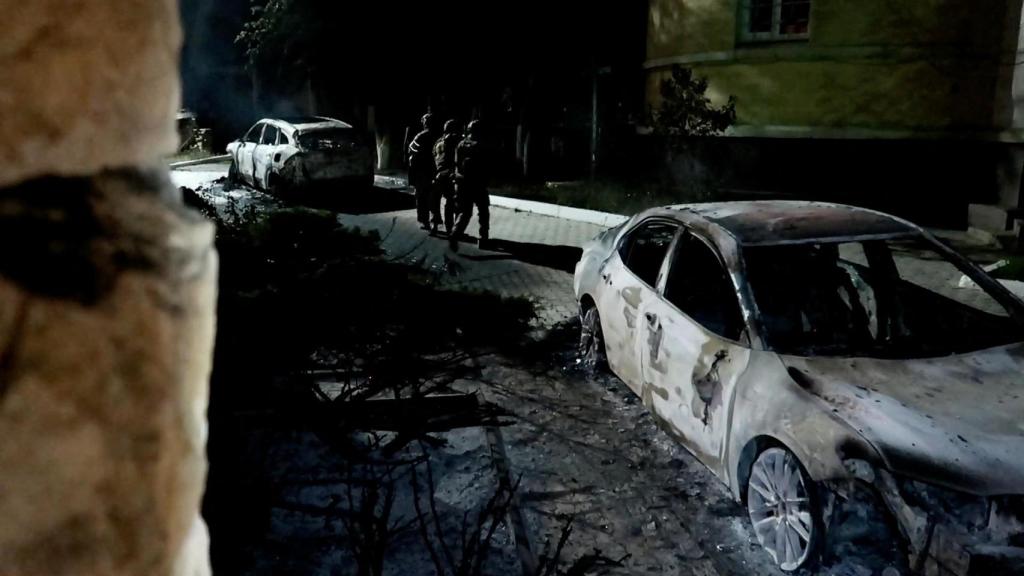Approximately, one in five Russian citizens professes the Muslim religion. We are talking about about twenty-five million people. In regions like Dagestan or Chechnya, they become the majority, while in other places the strong Azeri immigration It has enormous relevance. After the fall of the USSR, millions of Kazakhs, Kyrgyz, Tajiks, Turkmens and Uzbeks went to live and work in Russia, forming their own religious and cultural communities.
Hence the problem of islamic terrorism has been on the front line of news practically since the Soviet collapse. Specifically, for the Chechen militias. In 1995 they took over the Budionnosk hospital, the liberation of which caused the death of 30 hostages. In 2002, they repeated the feat with the kidnapping of hundreds of people at the Dubrovka theater in Moscow. falling into the greatest of infamies in 2004, when they took 1,181 children captive and teachers from a school in Beslan. The savage action of the anti-terrorist groups led to a shooting that caused the death of 334 people186 of them, minors.
Since then, one of the strong points of Putin’s domestic policy had been his ability to bring order to the Caucasus and limit terrorist action. Since the end of the second Chechen war (1999-2009), terrorism had become a minor issue, giving a false sense of security to the Russians not to question the regime’s ways. Something similar happened in the West, where, in some way, Putin played the goalkeeper who, despite his excesses, avoided many problems at the entrance, especially from the Paris massacres (2015), Brussels (2016) or Barcelona (2017).
In return, of course, both the European intelligences Like the American and Israeli secret services They shared all kinds of information with the Kremlin, which in turn affected their own security. All that has changed not only with the invasion of Ukraine, but with Russia’s aggressive distancing from what were previously its allies. It is not surprising, therefore, that this change has led to a new awakening of Islamic terrorism and jihadist revolts, encouraged by the collapse of the security services, the anti-Semitic resurgence and the feeling that the time has come to settle many outstanding accounts.
Twenty dead in Dagestan
Starting from the end, it is necessary to focus on Dagestan. It is a Muslim-majority region south of Chechnya, right on the border with Azerbaijanthat is, to two steps from Tehran.
Dagestan had already recently occupied its space in the news around the world when on October 29, an uncontrolled mob gathered through messages on social networks around the airport. The objective was lynch the occupants of a flight from Tel-Aviv and it took just a few minutes for them to achieve it.
Last weekend, however, the massacre could not be avoided. At least, 20 people died in series of attacks perpetrated by an Islamist cell, whose links to the ISIS It has not yet been confirmed – although it is assumed to be done -. The attacks occurred simultaneously in two cities in the region and focused on synagogues and Orthodox churches.
Derbent Synagogue after an attack by gunmen and a fire, in Derbent, Dagestan region, Russia.
Reuters
The terrorists spent hours shooting in the streets at law enforcement, unable to respond. It is very likely, given the circumstances, that the death toll is higher than that indicated by the authorities.
This weekend’s attacks are necessarily linked to what happened barely ten days ago at Preventive Detention Center Number 1 in Rostov-on-Don, next to Ukraine. On Saturday, June 15, a group of six prisoners took two police officers hostage in the name of Islamic State and threatened to cut their throats if they were not allowed to freely go out into the streets. Putin’s response was to send troops who immediately put down the revolt and ended the lives of the prisoners who had participated in the mutiny.
Without allies, at risk
Both the Dagestan massacre and the Rostov mutiny come just three months after the terrible ISIS-K attack on Crocus City Hall from Krasnogorsk, on the outskirts of Moscow. On that occasion, up to 144 people died, victims of point-blank shots and the subsequent fire in the building, bringing the total to 164 so far this year, although, we insist, probably the number is higher and do not want to raise the level of panic among the population.
In that case, before the evidence fell under its own weight, the Russian authorities insisted on blame Ukraine for the attack weaving a series of very complex excuses that hid the Islamist reality. Days before, the US embassy had warned the Kremlin of the risk of an attack and, faced with the disdain of the authorities, decided to convey this warning to its own citizens, so that they could avoid large public events as much as possible.

Members of the security forces carry out a police operation in Dagestan.
Reuters
Putin’s obstinacy in fleeing from everything that has to do with the West and taking refuge in China and South Korea has its consequences. To begin with, the Crocus massacre could have been avoided with a minimum of collaboration. Furthermore, the united work of the UN, the United States, Russia and the Arab countries in Syria had served to eliminate the ISIS structures. Undo that work to Protecting the interests of dictator Bashar Al-Assad has been another grotesque mistake.
Russia has decided to isolate itself from the free world and break ties with those that had been for decades your security allies: So, Europe, the United States or Israel. Nor do his approaches to Iran serve to reassure Sunni radicals, who see the Putin-Khamenei alliance as another reason for grievance. This rotates the unit. The world in general is becoming a more dangerous place, but the first to notice are the Russians themselves, who add to the unrest a war on their border, a dictator lost in the Kremlin and a list of enemies that is increasing day by day. day, all over the planet.














Add Comment